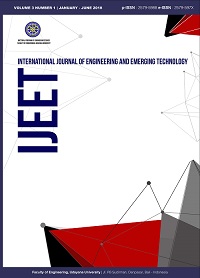Model of Group Peer Assessment on E-Learning
Abstract
Student motivation at class takes major role on achieving courses’ learning outcomes. Multimedia based content, game-based quiz, or self-assessment can maintain student interest to follow the learning process. Apart from the individual solution, working in group is one way to improve student motivation, however without proper arrangement, putting students in groups can degrade the competitive atmosphere of class, as less-smart students hang up to the more-smart students. Another alternative is implementing collaborative learning such as peer assessment that allows students to grade their fellows. However, objectivity between students must be concerned as students tend to give high-grade for their fellows. Combining group mode and peer assessment, this work proposed group peer assessment to improve student motivation on e-learning. Proposed method started by teacher open a group assignment on e-learning. Students then work on group to create solution. After the solutions are submitted, the extra-group peer assessment begins, where each group examines another group work. To maintain the objectivity of the peer assessment, final grade of each group obtained by combining grade from another group and grade from teacher. In the meantime, cooperation atmosphere in each group is maintained by intra-group peer assessment, where each member asses all his/her teammates in terms of intra-personal and inter-personal skills.

 Indexed By
Indexed By







